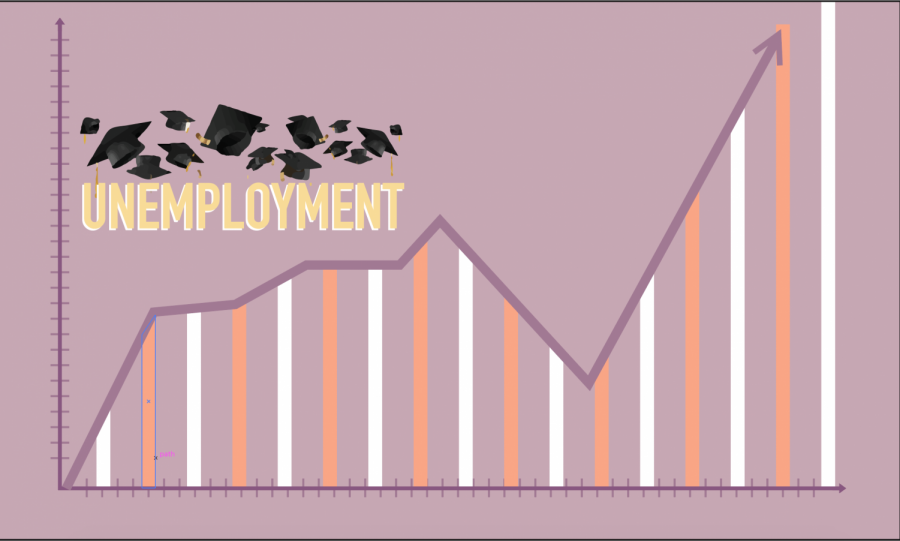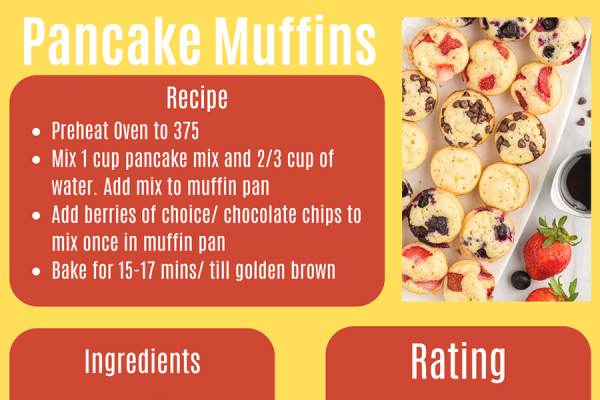How to prepare for the suffering US job market, according to career services director
The recent COVID-19 stay-at-home orders have created a slew of consequences across the globe, including an unprecedented toll on the US economy and job market. In the past three weeks, over sixteen million Americans have filed unemployment claims, and the Federal Reserve Bank of St. Louis has predicted a 32.1% unemployment rate as a result of the health crisis: a prediction that topples the Great Depression’s 24.9% unemployment rate.
With nearly 50% of companies considering layoffs and over one-third freezing new hires, the outlook for college students entering the workforce in the coming years appears grim. Gary Handy, Director of Career Services and Community Outreach, spoke on this daunting unemployment prediction to provide students with reassurance and advice on how to face the unforeseeable future.
The first thing that Handy wanted to point out was that the 32% prediction is a “general, overall scale for all industries.” He considers this prediction as a worst-case scenario that may never be reached, and believes that certain industries, especially those that do not require a baccalaureate degree, will be hit harder than others.
“I am hopeful that our soon-to-be college graduates and those coming along right behind them will not be as greatly affected as the average American who may or may not have that advanced degree behind them,” Handy said.
In addition, Handy thinks that the current American job market cannot be compared to those resulting from war or recession, meaning it could be more regenerative than those cases.
However, Handy emphasized the importance of being proactive instead of waiting for the current situation to improve. He wants to remind students that even without a health crisis, the average job search takes 6 to 8 weeks at a minimum, and this search includes a number of different aspects outlined below.
First, Handy recommends that students gain a better understanding of possible careers that exist within their major. Some students have no idea what to look for in terms of job opportunities within their major, while others tend to box themselves into a single profession, reducing their chances for future employment.
“I think having a better scope of what all you can do with your degree that you’ve worked so hard to pursue and earn gives you an opportunity to know what your plans can be, even if your first choice doesn’t come along immediately,” Handy said.
After gaining insight on possible career paths, he believes students should start using their time now to research different employers and opportunities, even if those employers currently have no open positions. He then suggests for students to begin making preparations, whether that be tailoring resumes for specific jobs or expanding networks via email, LinkedIn, Zoom, or phone calls.
“Make sure that you’re diligent at putting applications out there and continuing to build networks,” Handy said.
As far as resources go, Baker students still have access to all resources provided by career services. Students can schedule a Zoom appointment with Handy via Handshake, Baker’s job board platform. Through Handshake, students are also able to search for even more job opportunities. In addition, Handy has offered to connect students with alumni in different career fields.
Although Handy is currently focused on working with students in spring and summer internships, he promises to continue to notify students of different opportunities as they come about, such as virtual career fairs.
“Moving forward, I think there will definitely be some other things that I’ll try to do to address this unemployment issue on the front end,” Handy said.
For students who are anxious about the future and their ability to obtain a job, Handy urges them to speak up.
“I want students to know that just because I cannot be on this physical campus does not mean I don’t care. You do still have advocates, both myself and our alumni who are willing to have a conversation with you and work with you on what you want to do and where you want to go. But I can’t help you if I don’t know,” Handy said.
Although the current job market climate may give students discomfort, Handy is adamant in his reassurance, so long as students take charge of the situation.
“This too will pass. Don’t lose hope. While things may be slower to develop, they will recover, and that also includes opportunities….We just have to be patient and proactive.”
For more information about career services and their resources, visit their web page.

Isabel Ashley is a junior from Topeka, Kansas. She is studying Mass Media and is the news intern for Kansas Public Radio. Her interests include fashion,...










